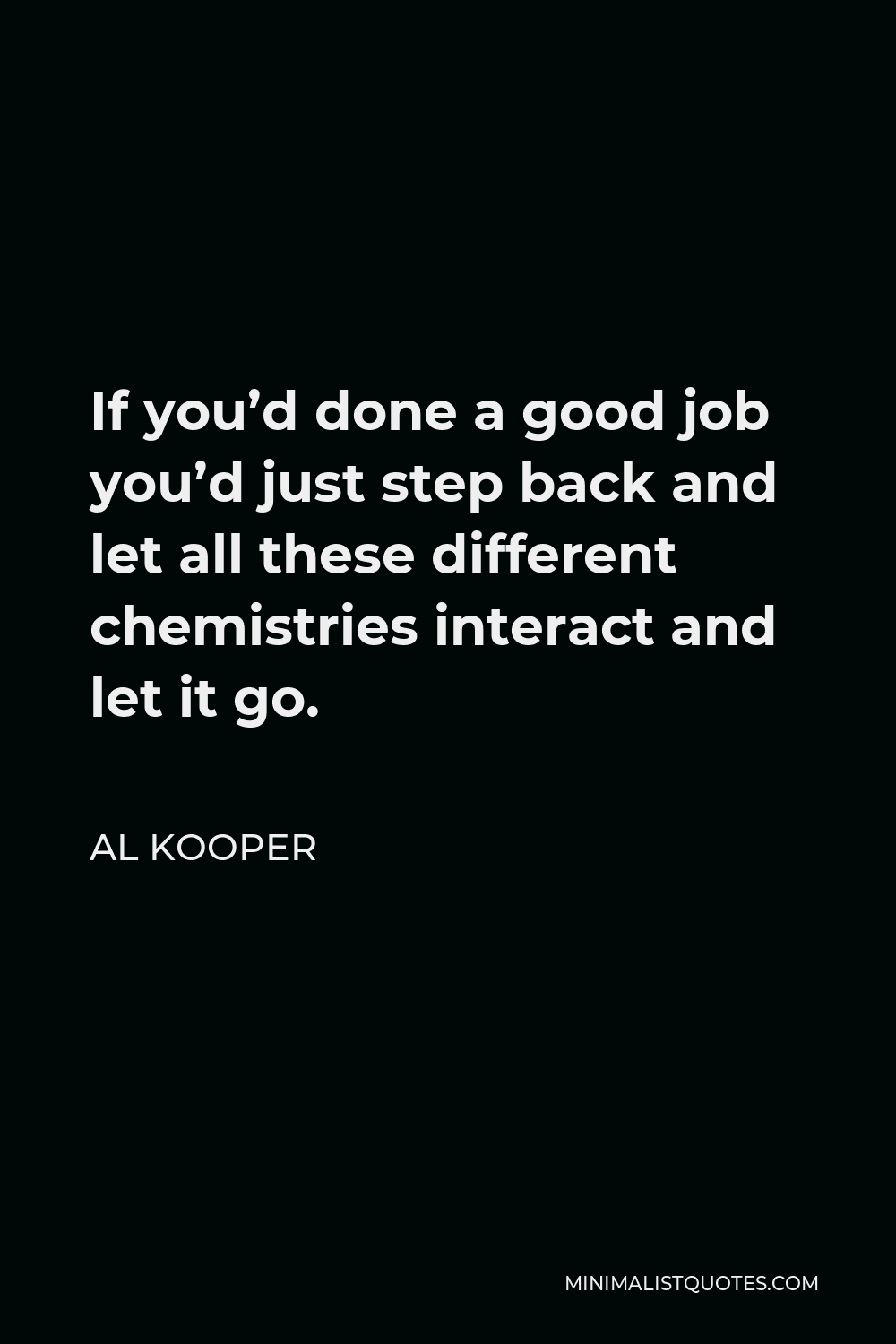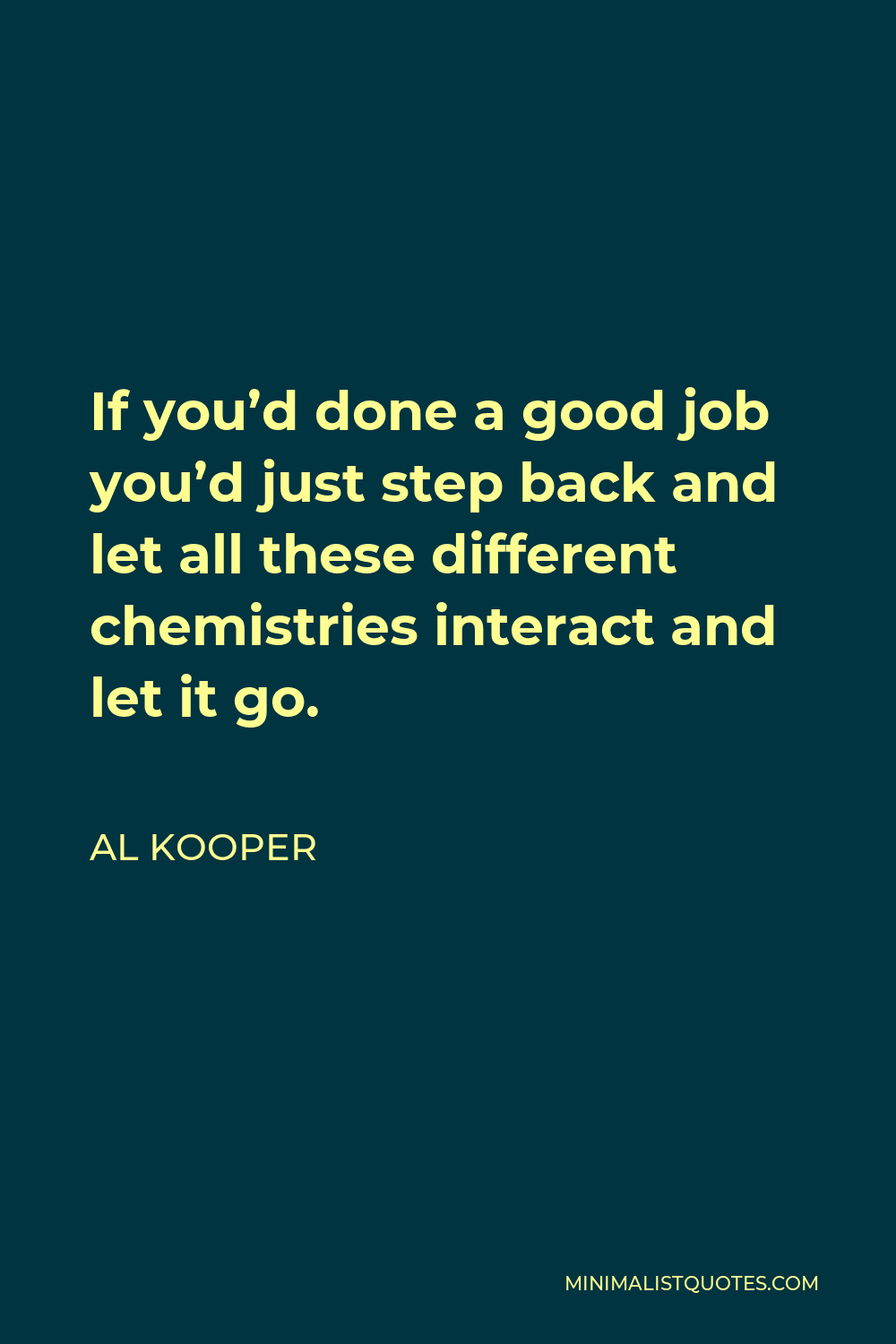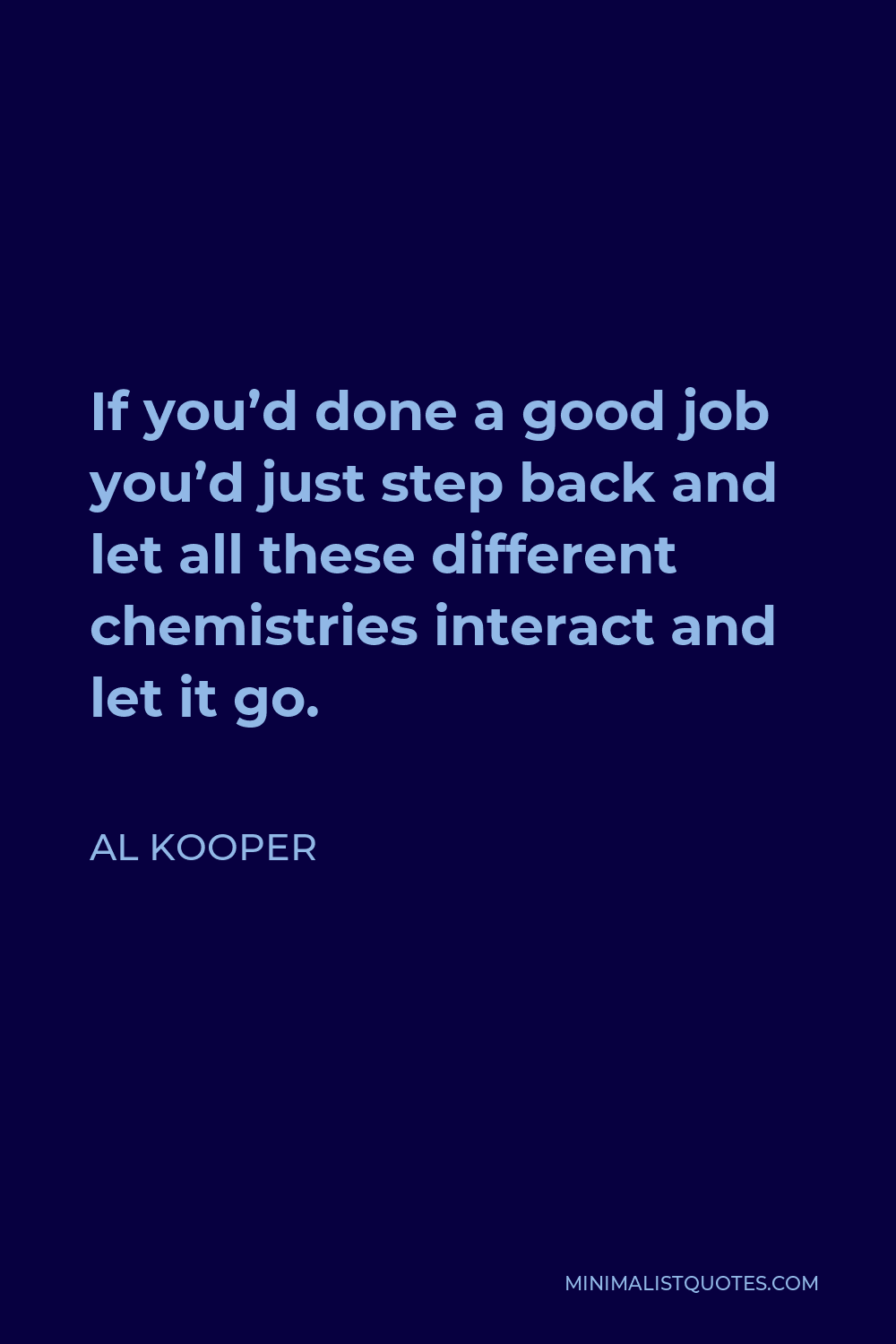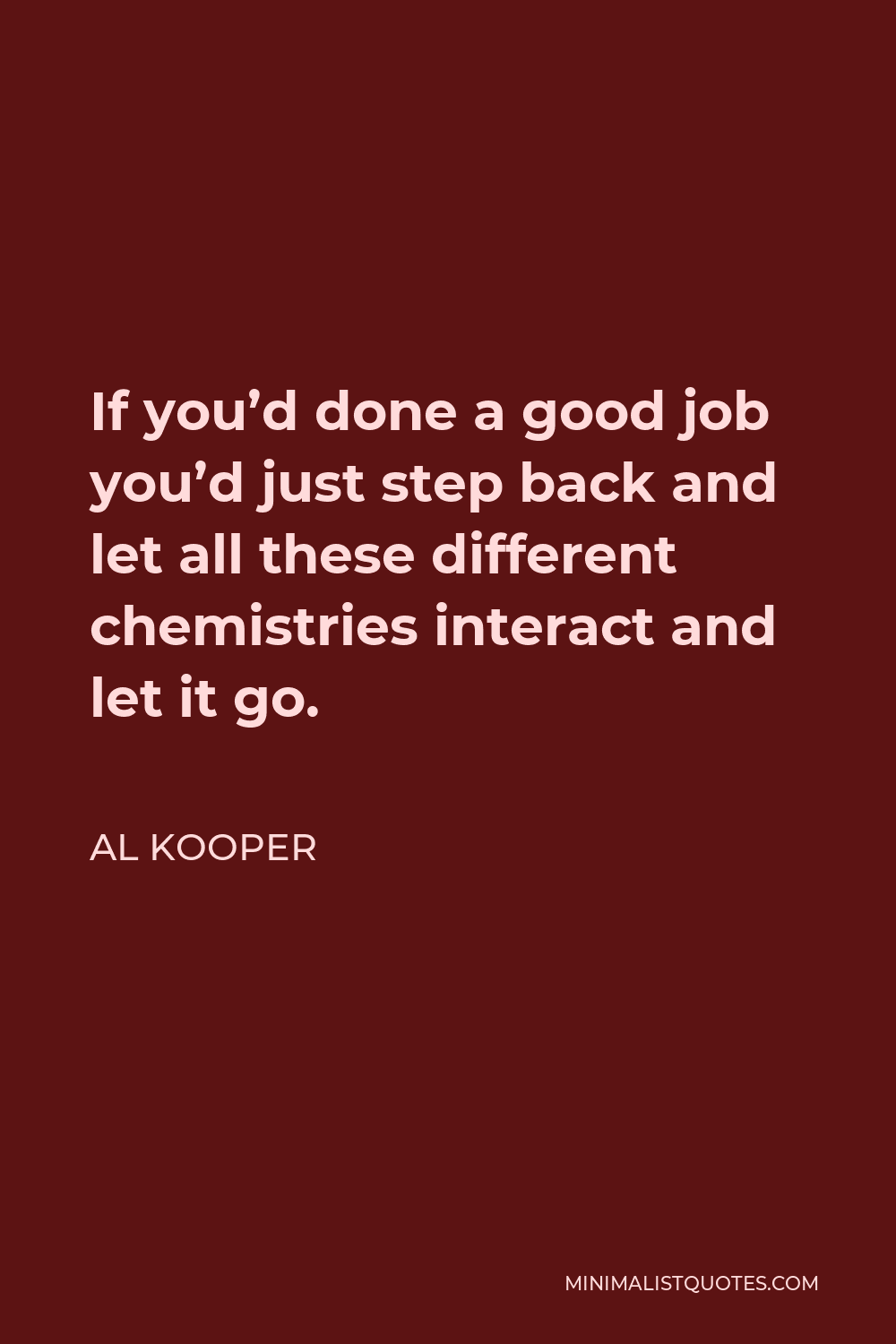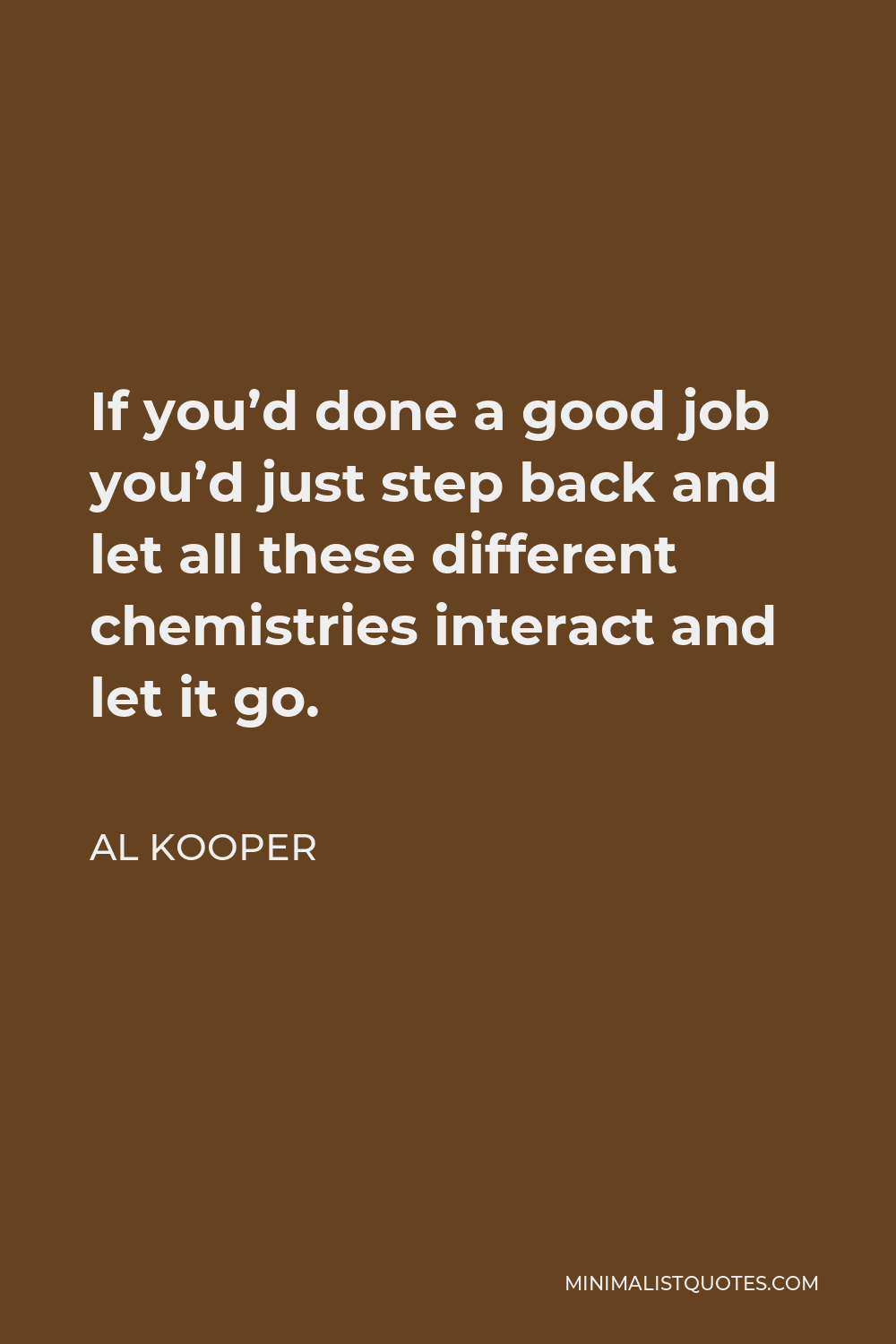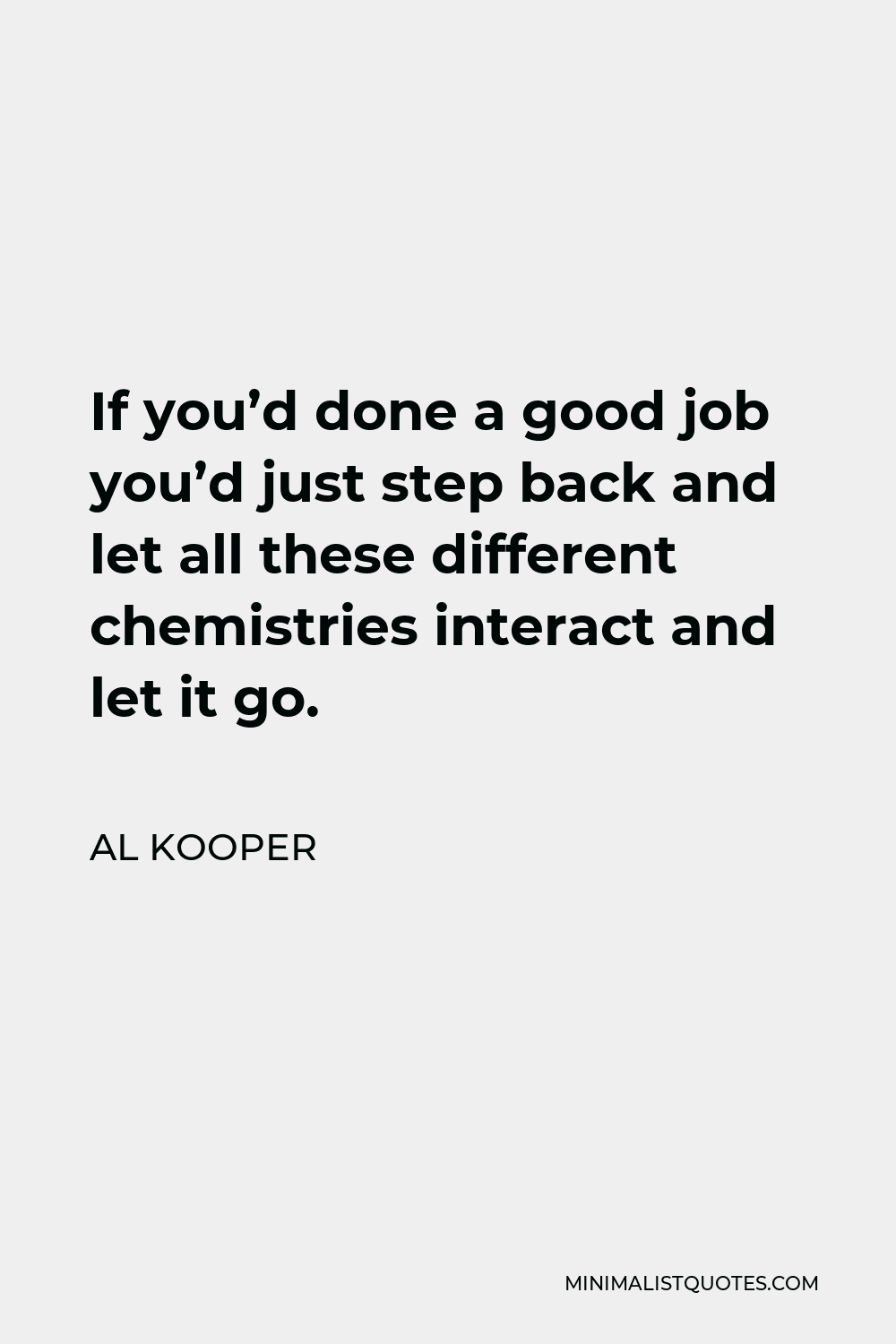Every day from 10 to 6, we’d go in there and pretend that we were 13 year old girls and write these songs. That was the gig.
AL KOOPERIf you’d done a good job you’d just step back and let all these different chemistries interact and let it go.
More Al Kooper Quotes
-





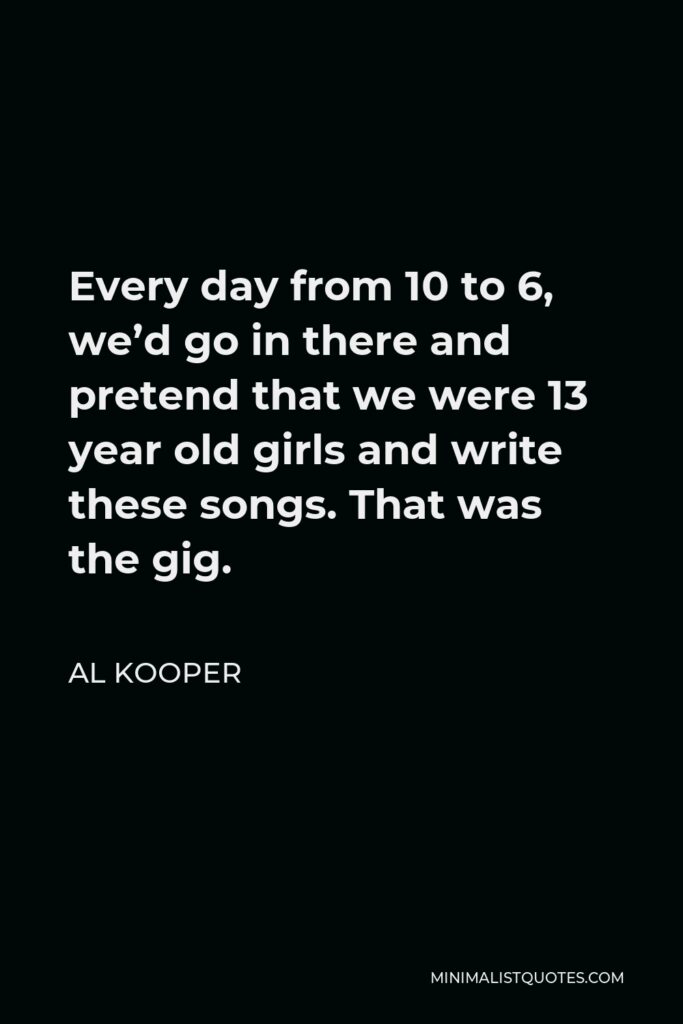

-





![Al Kooper Quote - The first generation from the ’50s that were in 1650 [Broadway] were pretty much all crooks,](https://minimalistquotes.com/wp-content/uploads/2022/07/the-first-generation-from-the-50s-that-were-in-165-683x1024.jpg)

The first generation from the ’50s that were in 1650 [Broadway] were pretty much all crooks,
AL KOOPER -





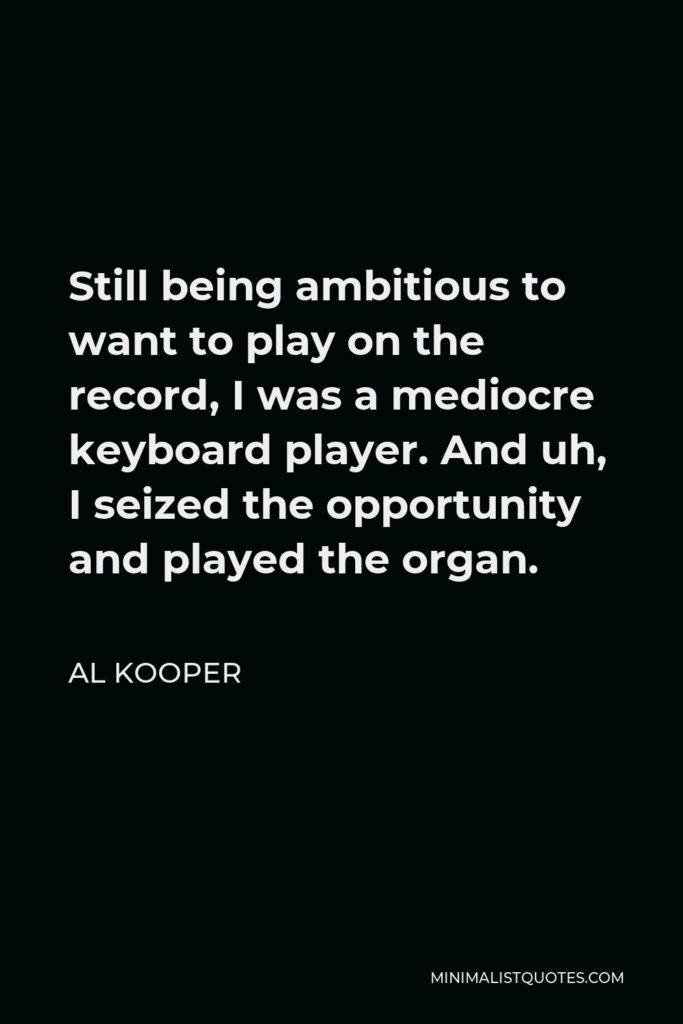

Still being ambitious to want to play on the record, I was a mediocre keyboard player. And uh, I seized the opportunity and played the organ.
AL KOOPER -







Finally a breath of fresh words founded in hardcore, intelligent research.
AL KOOPER -





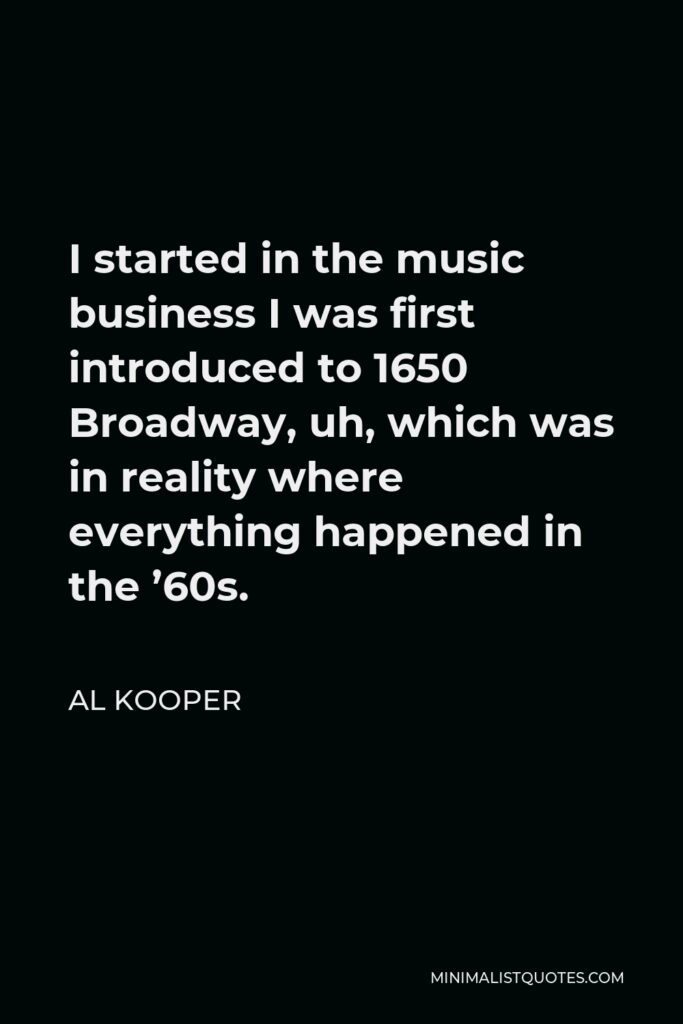

I started in the music business I was first introduced to 1650 Broadway, uh, which was in reality where everything happened in the ’60s.
AL KOOPER -





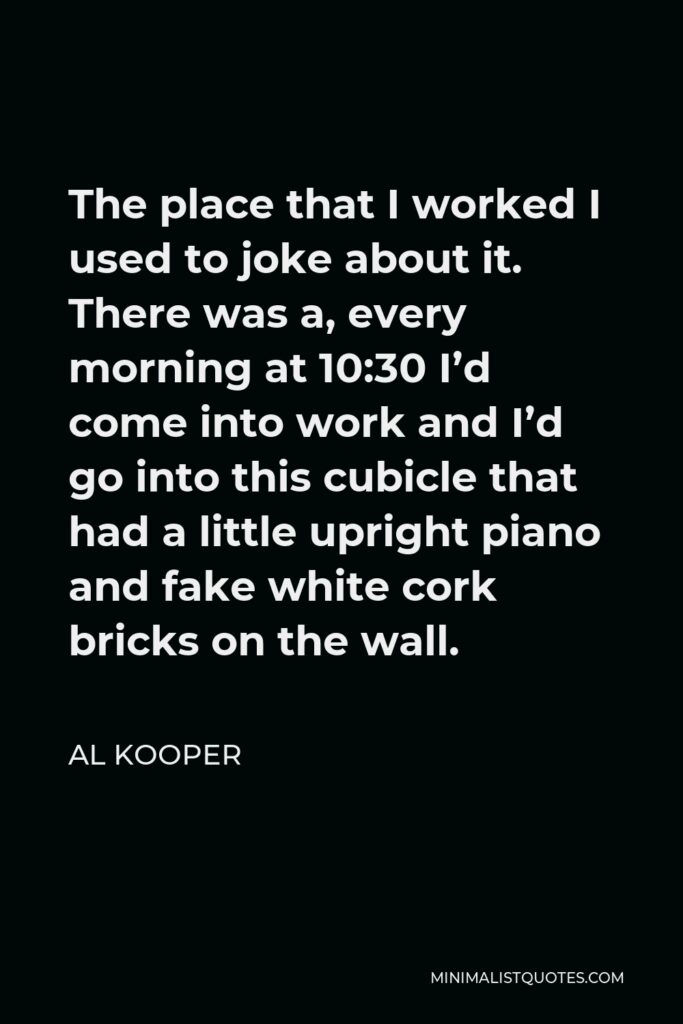

The place that I worked I used to joke about it. There was a, every morning at 10:30 I’d come into work and I’d go into this cubicle that had a little upright piano and fake white cork bricks on the wall.
AL KOOPER -







Bob Dylan said to the producer, turn up the organ. And Tom Wilson said, oh man, that guy’s not an organ player. And Dylan said.
AL KOOPER -





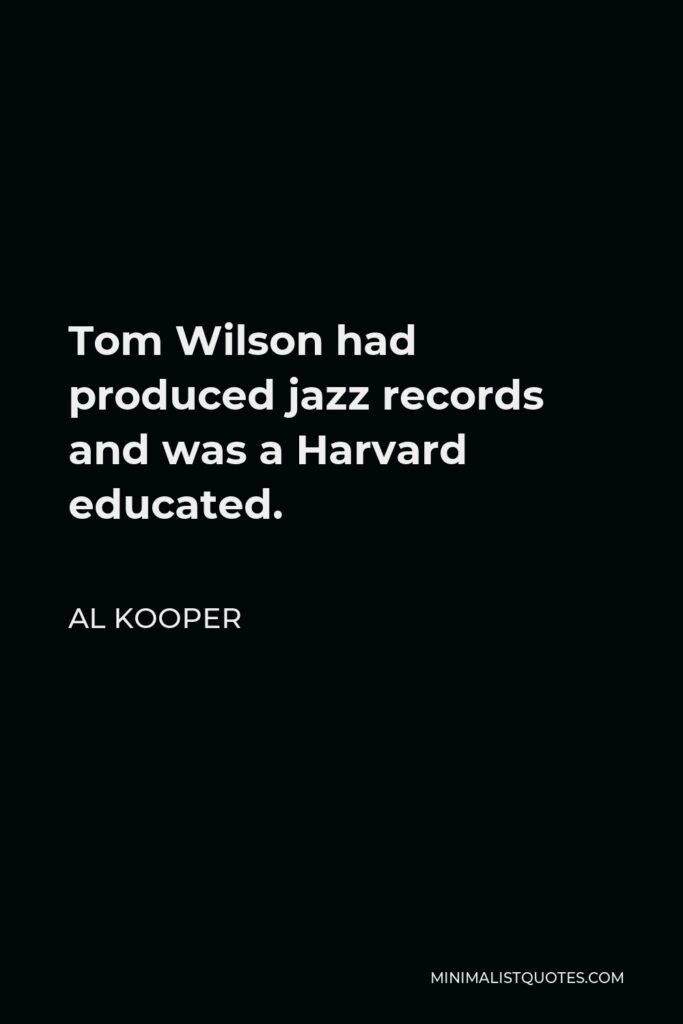

Tom Wilson had produced jazz records and was a Harvard educated.
AL KOOPER -





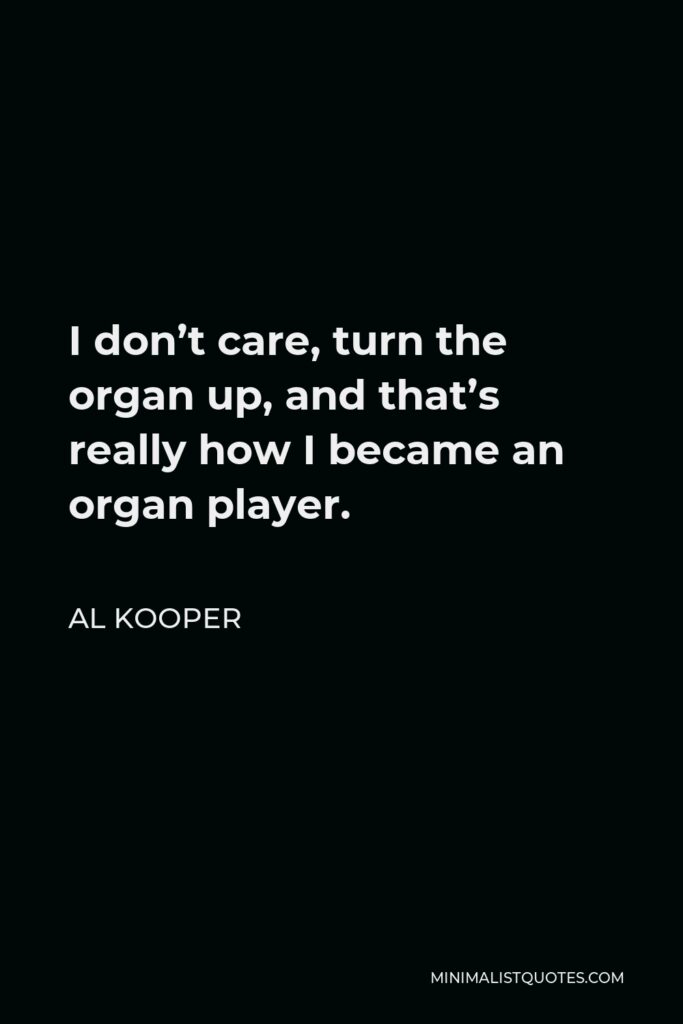

I don’t care, turn the organ up, and that’s really how I became an organ player.
AL KOOPER -





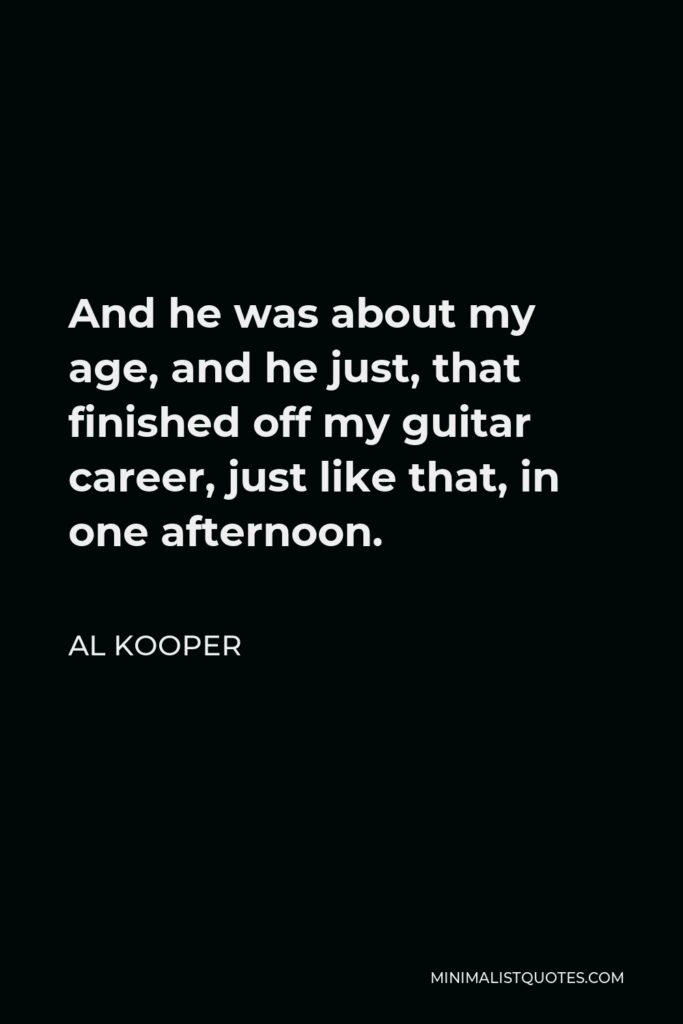

And he was about my age, and he just, that finished off my guitar career, just like that, in one afternoon.
AL KOOPER -





![Al Kooper Quote - Musically Bob [Dylan] is a primitive. He’s not a Gershwin, or somebody that uses eloquent music terms.](https://minimalistquotes.com/wp-content/uploads/2022/07/musically-bob-dylan-is-a-primitive-hes-not-a-gersh-683x1024.jpg)

Musically Bob [Dylan] is a primitive. He’s not a Gershwin, or somebody that uses eloquent music terms.
AL KOOPER -







Producing Bob Dylan was pretty much a spectator sport.
AL KOOPER -







My influences were mostly gospel. So I was playing my twisted Jewish equivalent of gospel music over his twisted equivalent of rock and roll music. And it was a very excellent marriage.
AL KOOPER -







I believe Irving Berlin was there, and uh, and everything just centered around there.
AL KOOPER -





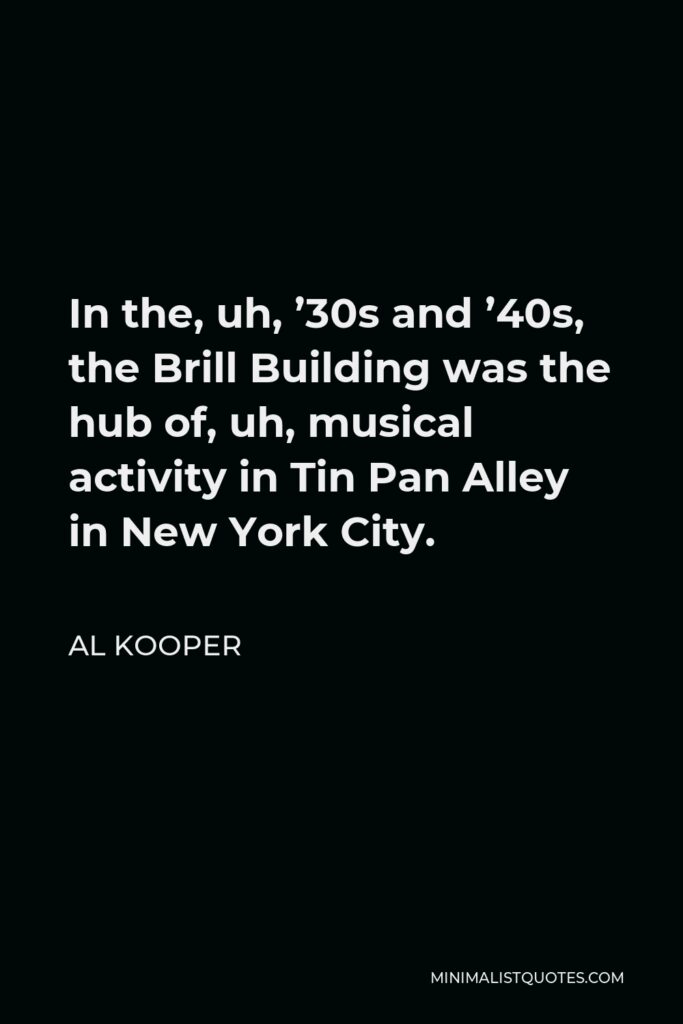

In the, uh, ’30s and ’40s, the Brill Building was the hub of, uh, musical activity in Tin Pan Alley in New York City.
AL KOOPER -





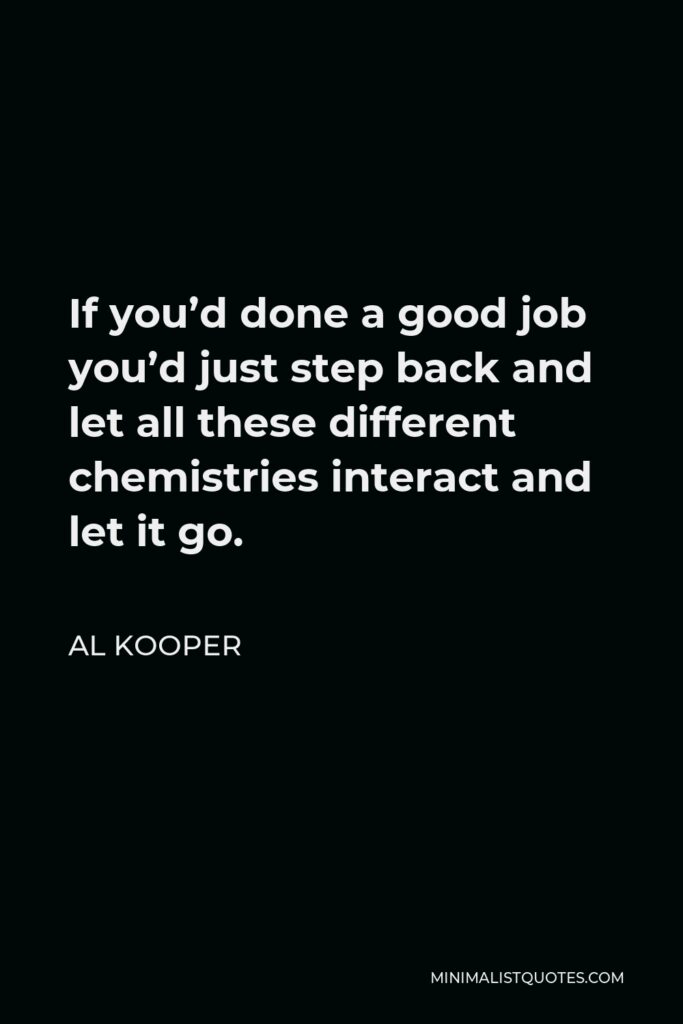

If you’d done a good job you’d just step back and let all these different chemistries interact and let it go.
AL KOOPER
